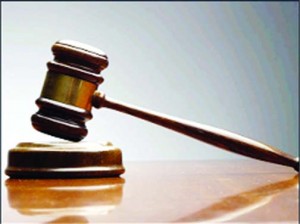 A landmark judgement on preventing convicted politicians from occupying elected posts, dealing with accusation of molestation of an intern by a retired judge and a ruling against “decriminalising” homosexual relationships marked the year in the Supreme Court.
A landmark judgement on preventing convicted politicians from occupying elected posts, dealing with accusation of molestation of an intern by a retired judge and a ruling against “decriminalising” homosexual relationships marked the year in the Supreme Court.
The Apex Court order on July 10 barred persons convicted or undergoing trial in criminal cases from membership of elected bodies,contesting or even voting in elections.
A Bench comprising Justices A K Patnaik and S J Mukhopadhaya had struck down as “unconstitutional” Section 8 (4) of the Representation of the People Act that allowed convicted lawmakers a three-month period for filing appeal to the higher court and get a stay on the conviction and sentence.
As a result Rashtriya Janata Dal (RJD) leader Lalu Prasad lost his Lok Sabha membership on September 30 after he was convicted and sentenced to five years rigorous imprisonment in a 17-year-old fodder scam case. Janata Dal (U) Member Jagish parshad Sharma also lost his seat. Congress member Rashid Masood was unseated in the Rajya Sabha after being convicted in a criminal case.
Former Supreme Court judge A K Ganguly, who is at present heading West Bengal Human Rights Commission was accused of molesting a law intern during a visit to Delhi. A three-member committee, appointed by the Supreme Court found “prima facie” evidence against him.
However, the panel said no action was required against Justice Ganguly since he is already retired. “No further follow up action by Supreme Court is required on account of Justice Ganguly’s superannuation on the date of the incident,” Chief Justice P Sathasivam said. He also said such matters would not be entertained in future as representations against former judges of the apex court were not entertainable by Court administration.
Towards the close of the year, the apex court overturned the Delhi high Court ruling decriminalising consensual homosexual acts between two consenting adults in a private place.
The High Court in 2009 had struck down Section 377 IPC framed during the British colonial rule in 1860 that put homosexuality under “Unnatural offences” punishable with imprisonment up to ten years coupled with fine.
However, a Supreme Court bench comprising Justices G S Singhvi (since retired) and S J Mukhopadhaya ruled that the High Court order was constitutionally unsustainable as only the government was empowered bring changes in the law.
Till such time that Parliament passes amendments to the law, the existing provisions would continue to apply that criminalizes sex even private sex between consenting adults, the bench said.
The Government and the NAZ Foundation have already filed review petitions in the case in the Apex court.
In another landmark ruling, the Supreme Court also granted the voters ‘Right to Reject’ in elections thus strengthening democracy in the country. Accordingly, the Election Commission allowed an additional button “None of the Above” in the Electronic Voting Machines (EVMs) for the first time in the just concluded Delhi assembly elections.
The apex court ruled that an investigating agency need not seek sanction of the Government for interrogation and prosecution of high ranking public servants in the court monitored cases.
It also disapproved the conduct of the UP Government which brought a notification stating that only minorities would get compensation in Muzaffarnagar riots and ruled that all riot victims would get compensation irrespective of their religion and caste. (UNI)

